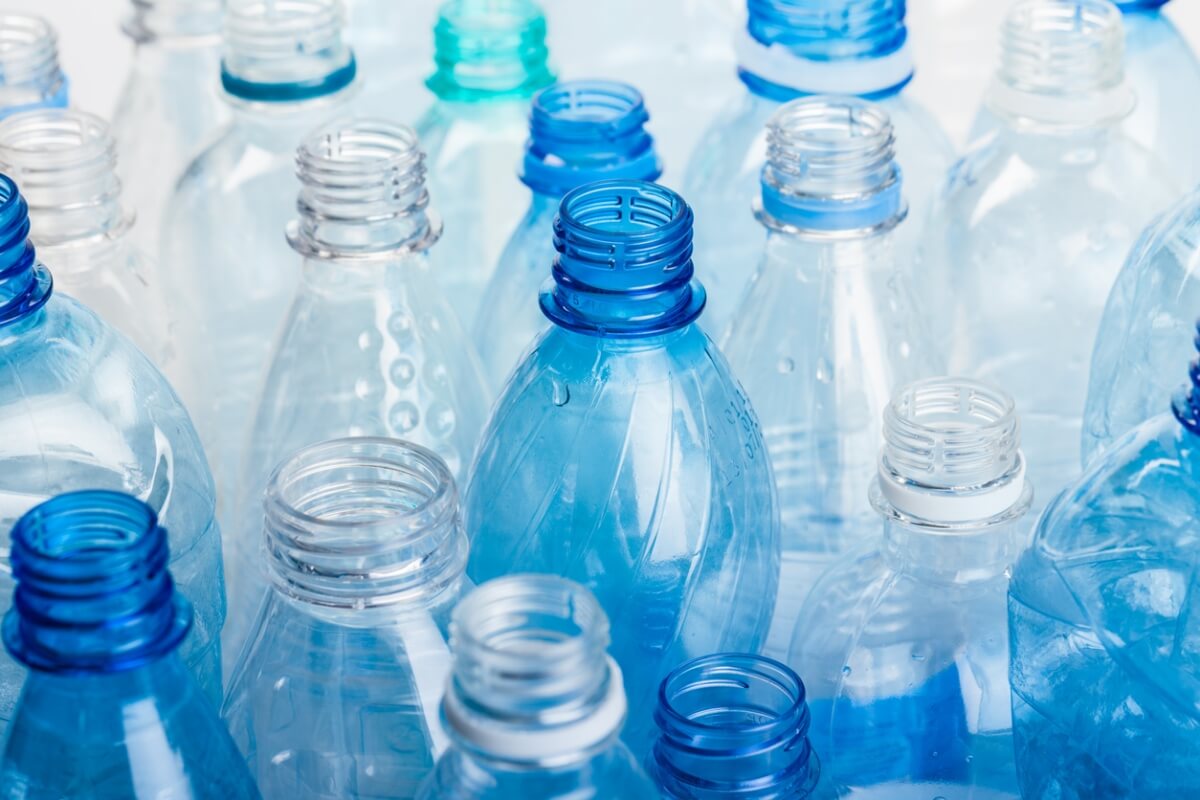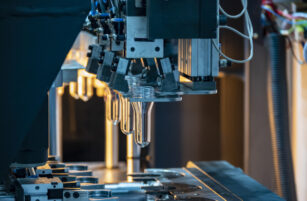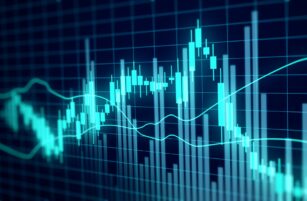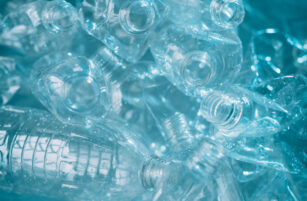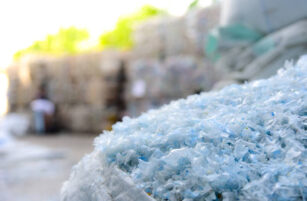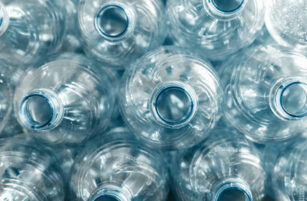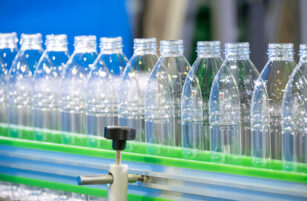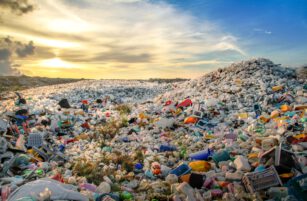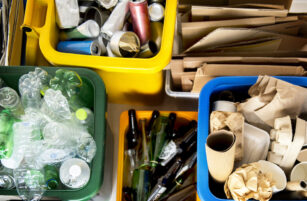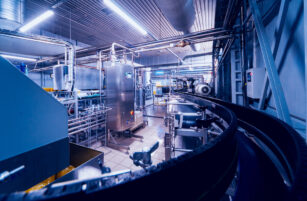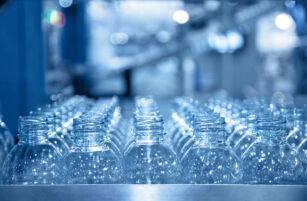Insight Focus
- Middle East is witnessing a significant shift towards incorporating rPET in F&B packaging.
- Robust regulatory frameworks in the region are plating a pivotal role in fostering rPET use.
- Regional food and beverage industry leaders are actively embracing rPET in their packaging.
Middle East Embraces Surge in Recycled PET in Food and Beverage Packaging
The Middle East is witnessing a notable shift towards utilizing recycled PET (rPET) in its beverage industry. Several beverage companies in the region are leading the charge by incorporating higher proportions of rPET in their packaging.
This shift signifies a departure from traditional reliance on virgin plastic, contributing to a more sustainable and circular economy within the region. The move also aligns with global efforts to curb plastic pollution and reduce the carbon footprint associated with packaging production.
This trend looks set to evolve rapidly, driven by a combination of regulatory initiatives, corporate sustainability goals, and consumer awareness.
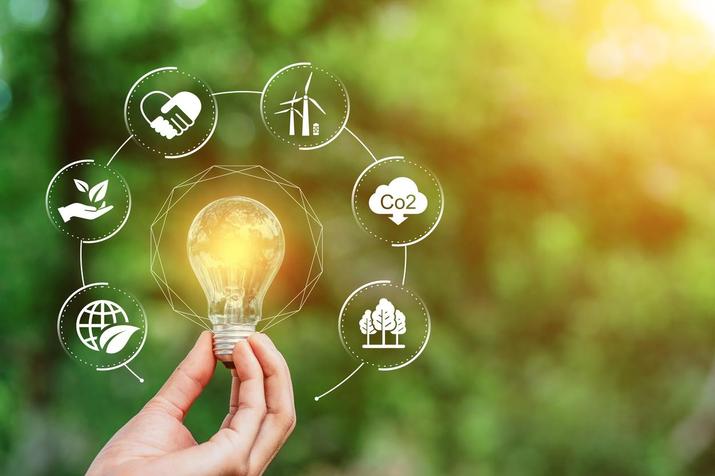
Source: Shutterstock
Regulatory Support Bolsters the Rise of Recycled PET in Middle Eastern Beverage Packaging:
Regulatory frameworks in the Middle East are playing a crucial role in fostering the increased use of rPET in beverage packaging. Governments in the region are introducing and reinforcing policies that encourage the adoption of sustainable packaging solutions.
Regulatory support encompasses measures such as tax incentives, subsidies, and stringent environmental standards that promote the incorporation of rPET in beverage bottles. These initiatives not only align with global sustainability goals but also propel the Middle East toward a more circular and eco-conscious approach to packaging.
Key regulatory frameworks for rPET in the GCC Region include:
UAE Circular Economy Policy: In January 2021, the UAE Cabinet approved the UAE Circular Economy Policy, which is a comprehensive framework for determining the country’s approach to achieving sustainable governance and the ideal use of natural resources, by adopting consumption and production methods that ensure the quality of life for current and future generations.
Amongst its many objectives, this policy sets a target of diverting 75% of waste from landfills by 2030, and it specifically identifies rPET as a key material for achieving this goal. The policy also calls for the development of standards and guidelines for rPET production and use.
To support these initiatives, the UAE has expanded its recycling infrastructure, including waste collection centres, sorting facilities, and recycling plants, to increase the recycling rate.
Abu Dhabi’s Mission to Zero: Abu Dhabi’s Environment Agency has committed to reuse, recycle and refuse single-use product by pledging to:
- Make Abu Dhabi government entities 100% free of single-use products.
- Recover 50% of single-use plastic bottles through an incentive-based scheme.
- Replace 100% of single-use grocery plastic bags with multiple-use bags.
The plastics initiative also supports the UAE’s wider sustainability goals, including its ambitious Net Zero 2050 Strategy.
Both initiatives also have a strong focus on community engagement, with individuals and businesses actively participating in sustainable practices and advocating for environmental protection.
Since the start of 2017, the UAE government and enterprises have worked hand in hand to educate the public on waste segregation and recycling, to keep recyclable plastic out of landfills as part of the country’s sustainability goals.
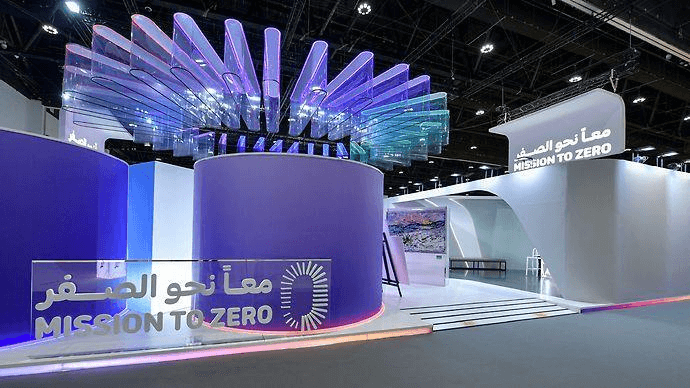
Source: Abu Dhabi Media Office
During the Abu Dhabi Sustainability Week (ADSW) 2023 in January, a ministerial decision regulating the trade of recycled plastic water bottles was issued by The Ministry of Industry and Advanced Technology (MoIAT), in line with the UAE’s top public health and food safety standards.
According to the new decision, recycled polyethylene terephthalate (rPET) that is produced at MoIAT-approved recycling facilities and certified to conform to the UAE Regulation for Control on Food Contact Material can be used as water bottles and food packaging.
New legislation has also been touted with an aim that plastic products must have 30% recycled content, a formal date and target though is yet to be set.
In addition to these regulatory frameworks, the UAE government has also implemented several initiatives to support the rPET industry, including financial incentives for rPET producers and users, and support for research and development in rPET technologies.
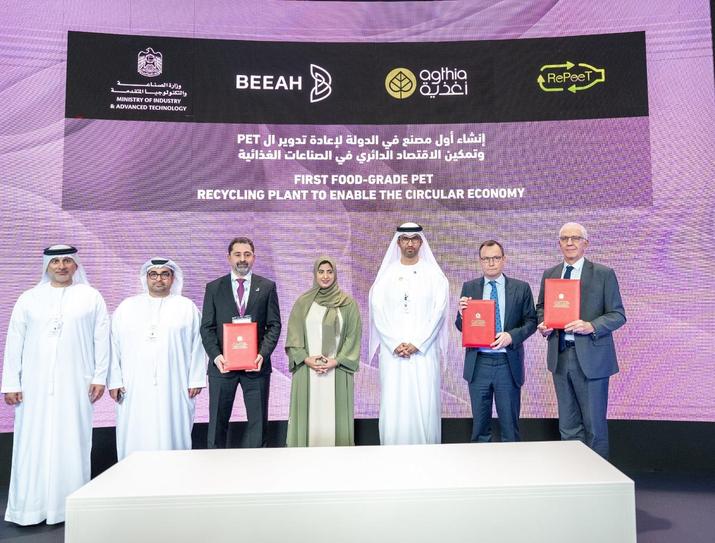
Source: UAE Ministry of Industry and Advanced Technology
Earlier this year, Veolia, through its regional subsidiary Repeet, signed an agreement with Beeah, a UAE-based sustainability initiatives company, and food and beverage company Agthia to set up the first food-grade plastic recycling plant in UAE.
When operational, the proposed facility will be based in Abu Dhabi and have a total capacity of 12,000 tonnes per annum of food-grade resin.
Ramping Up Collection Through Reverse Vend Initiatives
As a result of these efforts, the UAE is making significant progress in increasing the uptake of rPET. The country is now one of the leading producers and consumers of rPET in the Middle East and North Africa (MENA) region.
However, as with Europe and the US, emphasis also needs to be placed on local collection, and not simply on demand and production.
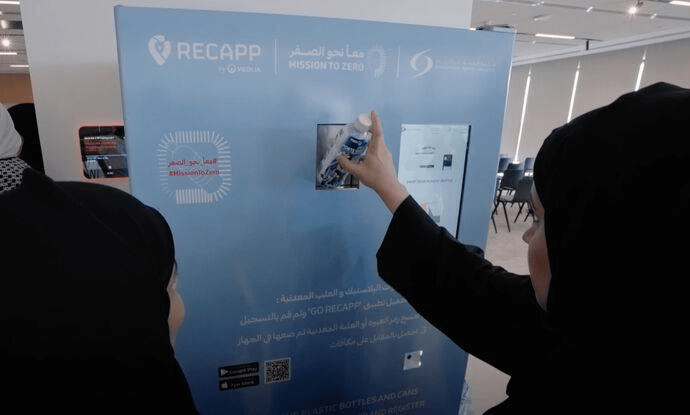
Source: Abu Dhabi Environmental Agency
Therefore, as part of the Mission to Zero campaign, in July 2023 Abu Dhabi’s Environment Agency launched its bottle return scheme initiative, aiming to reduce plastic waste by collecting 20 million single-use plastic bottles annually.
The initiative will install 70 reverse vending machines (RVM) and 26 smart bins throughout Abu Dhabi; those who utilize the RVMs and smart bins to recycle plastic bottles and aluminum can receive awards.
RVMs will be found in popular areas such as the Abu Dhabi Corniche, international airport, sports venues, malls, schools, and gas stations across Abu Dhabi.
Brand and Packaging Manufacturers Take Strides to Embrace rPET
Coca-Cola Middle East were amongst the first to trial the introduction of 100% recycled PET (rPET) beverage bottles in the region for the FIFA World Cup Qatar in 2022.
However, whilst this was a short lived, targeted campaign, other brands have gone on to introduce 100% rPET bottles into their mainstream product ranges within the Gulf region.
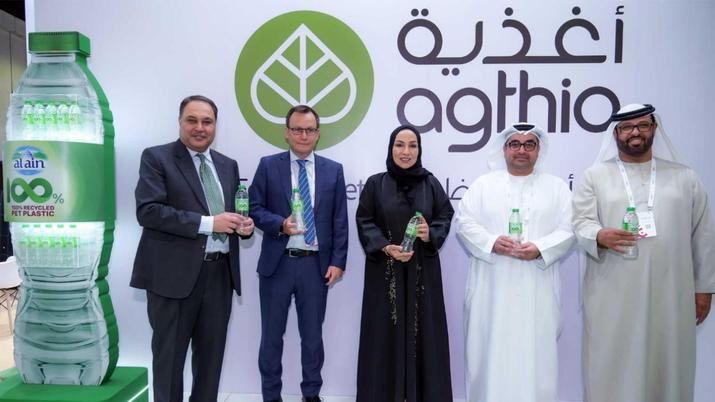
Source: Agthia Group
Building upon the MOU between Agthia Group, Repeet, and Bee’ah, mentioned above, the Agthia Group’s Al Ain Water, the UAE’s leading water brand, announced the launch of its new rPET water bottle at Gulfood in February 2023.
Agthia claims the new 100% rPET bottle was the first to be locally produced by a UAE brand.
And last month, November 2023, PepsiCo also took a significant leap towards sustainability in the UAE.
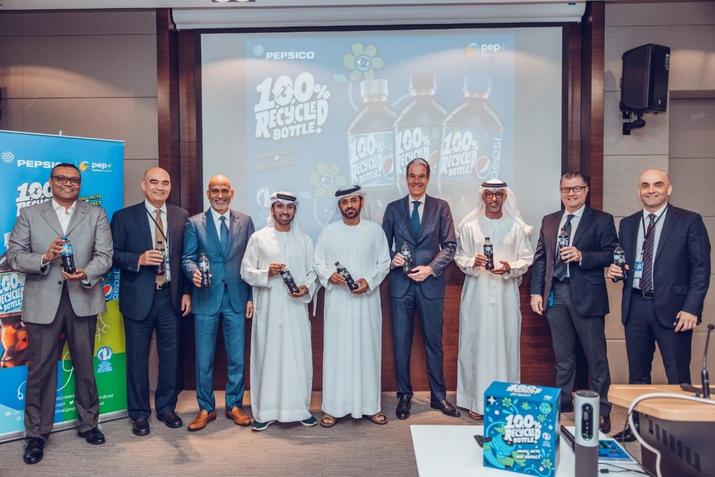
Source: PepsiCo
PepsiCo unveiled new 100% recycled plastic bottles for Pepsi, Diet Pepsi, and Pepsi Zero. According to PepsiCo, these new bottles, excluding caps and labels, generate over 30% fewer greenhouse gas emissions compared to traditional PET bottles.
Aligned with its pep+ (PepsiCo Positive) strategy, the company aims for net-zero emissions across its value chain by 2040 and a 50% reduction in virgin plastic usage globally across its food and beverage portfolio by 2030.
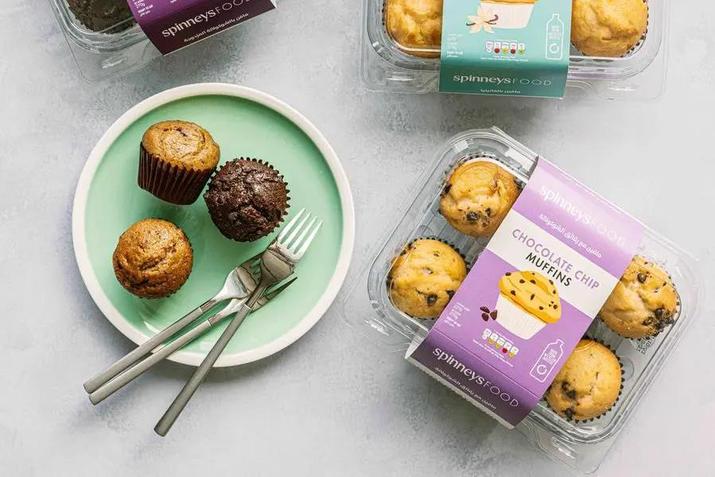
Source: Spinneys
Spinneys, a prominent fresh food retailer in the UAE, has become the first UAE retailer to transition to rPET, partnering with packaging manufacturer Al Bayader International.
Spinneys will use rPET from Al Bayader in its private label ‘SpinneysFOOD,’ starting with 30% rPET content in packs found in the bakery section. The transition is anticipated to reduce annual CO2 emissions by six metric tonnes and divert two tons of virgin PET from landfill.
Each product carries an “Al Bayader Recycl’d” QR code, enabling customers to trace the manufacturing date and the precise percentage of rPET content.
Summary
The Middle East is experiencing a significant shift towards the use of rPET in its food and beverage packaging, with numerous companies leading the charge. Momentum is being driven through a combination of regulatory initiatives, corporate sustainability goals, and increasing consumer awareness, with demand expected to surge in coming years.
Existing regulatory support, from notable frameworks such as the UAE Circular Economy Policy and Abu Dhabi’s Mission to Zero are playing a pivotal role in fostering the adoption of rPET. COP28, which is currently underway in Dubai, is also likely to provide a platform for change adding to the momentum that is already apparent with the Gulf market.
